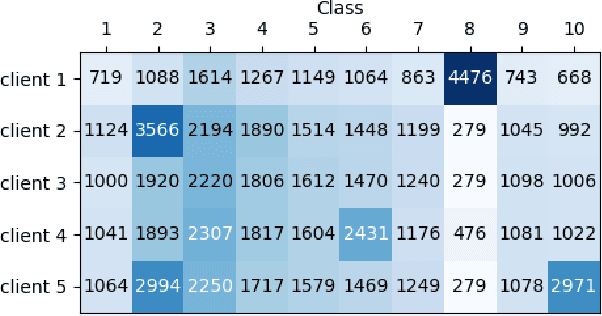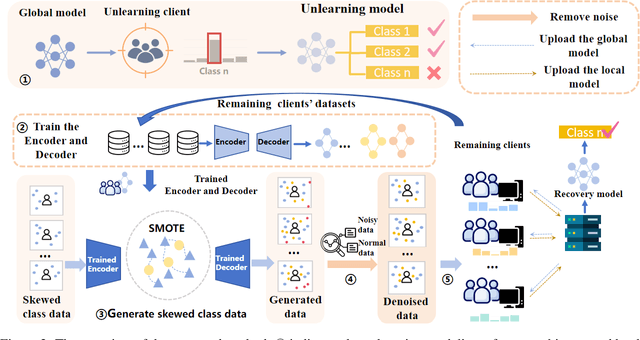Xinrui Yu
HREB-CRF: Hierarchical Reduced-bias EMA for Chinese Named Entity Recognition
Mar 03, 2025Abstract:Incorrect boundary division, complex semantic representation, and differences in pronunciation and meaning often lead to errors in Chinese Named Entity Recognition(CNER). To address these issues, this paper proposes HREB-CRF framework: Hierarchical Reduced-bias EMA with CRF. The proposed method amplifies word boundaries and pools long text gradients through exponentially fixed-bias weighted average of local and global hierarchical attention. Experimental results on the MSRA, Resume, and Weibo datasets show excellent in F1, outperforming the baseline model by 1.1\%, 1.6\%, and 9.8\%. The significant improvement in F1 shows evidences of strong effectiveness and robustness of approach in CNER tasks.
Federated Unlearning Model Recovery in Data with Skewed Label Distributions
Dec 18, 2024



Abstract:In federated learning, federated unlearning is a technique that provides clients with a rollback mechanism that allows them to withdraw their data contribution without training from scratch. However, existing research has not considered scenarios with skewed label distributions. Unfortunately, the unlearning of a client with skewed data usually results in biased models and makes it difficult to deliver high-quality service, complicating the recovery process. This paper proposes a recovery method of federated unlearning with skewed label distributions. Specifically, we first adopt a strategy that incorporates oversampling with deep learning to supplement the skewed class data for clients to perform recovery training, therefore enhancing the completeness of their local datasets. Afterward, a density-based denoising method is applied to remove noise from the generated data, further improving the quality of the remaining clients' datasets. Finally, all the remaining clients leverage the enhanced local datasets and engage in iterative training to effectively restore the performance of the unlearning model. Extensive evaluations on commonly used federated learning datasets with varying degrees of skewness show that our method outperforms baseline methods in restoring the performance of the unlearning model, particularly regarding accuracy on the skewed class.
 Add to Chrome
Add to Chrome Add to Firefox
Add to Firefox Add to Edge
Add to Edge